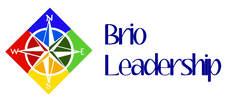President Kristin Robertson speaks on Brio Leadership's vision to help businesses incorporate core values into their business model, tells success stories, and discusses the topics of Conscious Capitalism and Executive Coaching in these new YouTube videos. Click here to visit our YouTube channel to watch these videos! Kristin Robertson, CEO of Brio Leadership, is dedicated to increasing the number of employees who are excited to go to work on Monday mornings. Services include executive coaching, leadership development classes and company culture consulting. Don’t forget to get a copy of Kristin Robertson’s new book, Your Company Culture Ecosystem, available on Amazon.
0 Comments
 Leaders cast a long shadow. In a family-owned business, this means that the leaders, typically the founders or second-generation family members, set the tone for the rest of the company. Employees follow the example of their leaders, mimicking their behaviors, actions and decision-making styles. In a conscious business, leaders are aware of their influence and take care to ensure that they are leading with high self-knowledge and maturity. Leadership is a difficult and complex job. In addition to being smart, leaders in today’s marketplace must possess emotional and spiritual intelligence and an understanding of systems theory. They must possess self-awareness of their tendencies and habitual emotional reactions, they must have the ability to scan a room for its mood, and they must demonstrate empathy and compassion for their teams. They must be able to see an organization as a system in which everything is connected and the sum is greater than the parts. Lastly, they must have a long-term and holistic perspective of the decisions they make in order to account for all stakeholders of the organization. In this blog post we will discuss emotional intelligence and in future posts we will go into the other characteristics of conscious leadership.  Culture is the very soul of a company. It manifests in the way people (insiders and external suppliers) are treated, the way decisions are made, and the behavioral norms that may be unspoken but expected. Culture is the result of how an organization embodies its core values, and it consequently becomes the company’s collective world view. Walter Robb, Co-CEO of Whole Foods Market, says that culture is “the actual practice of those [core] values over time.” i Culture is intangible but vitally important. According to James Heskett of Harvard Business School, “Culture can account for up to half of the difference in operating profit between two organizations in the same business.” ii Because it has to do with how people, especially employees, are treated, the ramifications of culture pervade all aspects of a business. The productivity, engagement, innovation, and energy of your workforce are a result of the working environment that leaders build. Conscious Culture is one of four tenets of Conscious Capitalism, which we have covered in a previous article. The Conscious Capitalism movement is one of the most exciting developments in business practices in the 21st century, and it deserves the attention of family-owned businesses, many of which are deeply values-driven. Here are five steps to building a conscious culture in your organization: |
From the desk of
|
Our services |
Our Company |

 RSS Feed
RSS Feed

